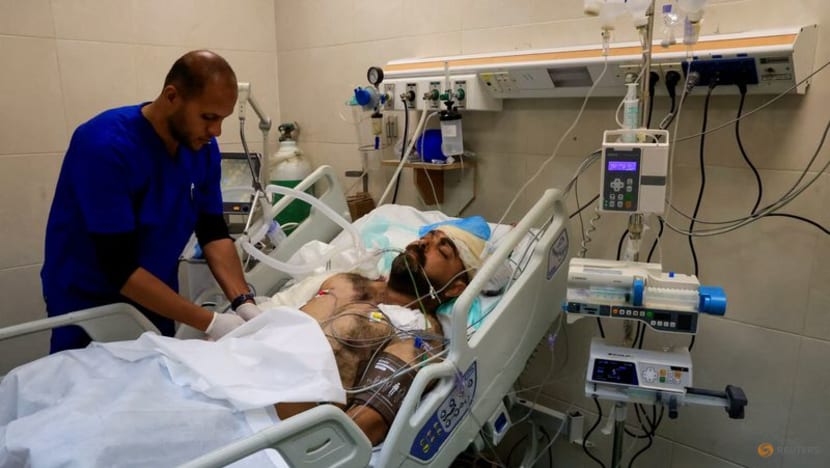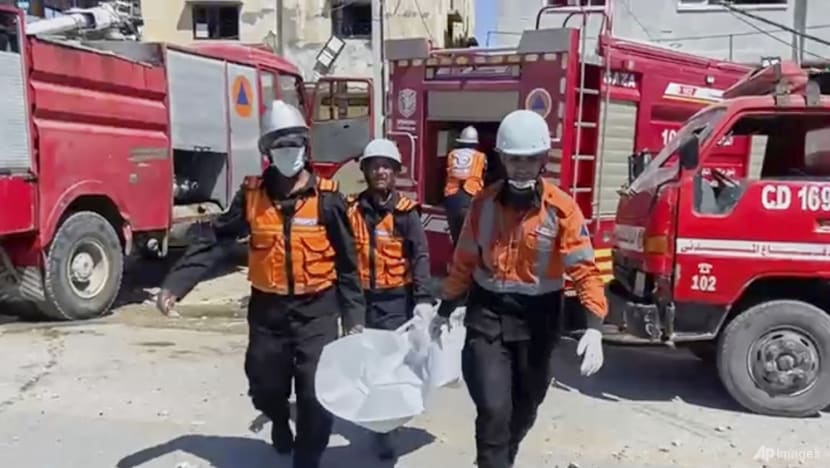'Death is sometimes kinder': Relatives recount Gaza strike that devastated family

Hamdi Al-Najjar, a wounded Palestinian father and doctor who, according to medics, lost nine of his children in an Israeli strike on Friday, lies in a hospital bed in the Intensive Care Unit at Nasser Hospital after being injured in the same strike, in Khan Younis, in the southern Gaza Strip, May 25, 2025. REUTERS/Hatem Khaled
The paediatrician, with no means of transport, ran from the Nasser Hospital to the family's house in the city of Khan Younis, a relative told AFP, only to be met with every parent's worst nightmare.
"When she saw the charred bodies, she started screaming and crying," said Ali al-Najjar, the brother of Alaa's husband.
Nine of her children were killed, their bodies burned beyond recognition, according to relatives.
The tenth, 10-year-old Adam, survived the strike but remains in critical condition, as does his father, Hamdi al-Najjar, also a doctor, who was also at home when the strike hit.
Both are in intensive care at Nasser Hospital.
When the body of her daughter Nibal was pulled from the rubble, Alaa screamed her name, her brother-in-law recounted.
The following day, under a tent set up near the destroyed home, the well-respected paediatric specialist sat in stunned silence, still in shock.
Around her, women wept as the sounds of explosions echoed across the Palestinian territory, battered by more than a year and a half of war.
"THEIR FEATURES WERE GONE"
The air strike on Friday (May 23) afternoon was carried out without warning, relatives said.
Asked about the incident, the Israeli military said it had "struck a number of suspects who were identified operating from a structure" near its troops, adding that claims of civilian harm were under review.
"I couldn't recognise the children in the shrouds," Alaa's sister, Sahar al-Najjar, said through tears. "Their features were gone."
"It's a huge loss. Alaa is broken," said Mohammed, another close family member.
According to medical sources, Hamdi al-Najjar underwent several operations at the Jordanian field hospital.
Doctors had to remove a large portion of his right lung and gave him 17 blood transfusions.

"I found my brother's house like a broken biscuit, reduced to ruins, and my loved ones were underneath," Ali al-Najjar said, recalling how he dug through the rubble with his bare hands alongside paramedics to recover the children's bodies.
Now, he dreads the moment his brother regains consciousness.
"I don't know how to tell him. Should I tell him his children are dead? I buried them in two graves."
"There is no safe place in Gaza," he added with a weary sigh. "Death is sometimes kinder than this torture."














